SAS selection deaths: 'Too much paperwork' to swap march date
- Published
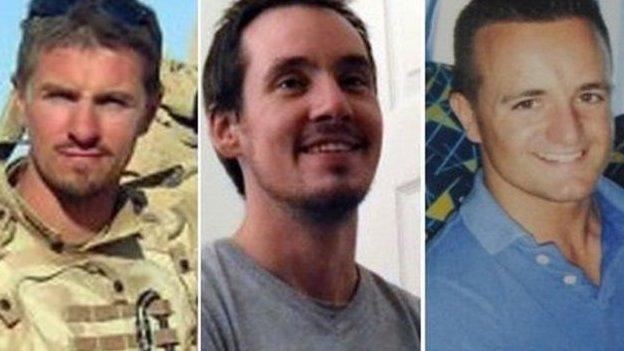
Cpl James Dunsby, L/Cpl Edward Maher and L/Cpl Craig Roberts took part in the exercise in 2013
An Army officer told a grieving family it would have been "too much paperwork" to cancel SAS reserve training in which three men died, an inquest has heard.
He allegedly made the remark to L/Cpl Craig Roberts' relatives shortly after they had viewed his body in a mortuary.
L/Cpl Roberts, L/Cpl Edward Maher and Cpl James Dunsby collapsed in the Brecon Beacons on one of the hottest days of 2013.
Criminal charges will not be brought over the deaths.
In a family statement read to the hearing by her lawyer, 24-year-old L/Cpl Roberts' mother Margaret questioned why her son, from Penrhyn Bay, Conwy, was "sent up there in that heat".
It was one of the hottest days of the year on 13 July 2013 when the soldiers were on the training exercise
Family members said they later visited Prince Charles Hospital, Merthyr Tydfil, where they asked a commanding officer whether the timing of the march could have been changed.
"He replied, 'there would be too much paperwork'," the family statement added.
"We were so angry with this answer. We were being told that the march wasn't cancelled to save on paperwork."
It was one of the hottest days of the year on 13 July 2013, with temperatures expected to hit 27C (80.6F). The soldiers were carrying 49lb (22kg) rucksacks on the 16-mile (26km) march.
The inquest, being heard in Solihull, West Midlands, is expected to last for up to four weeks and to examine risk-assessments, briefings and the amount of water given to soldiers before they set off.
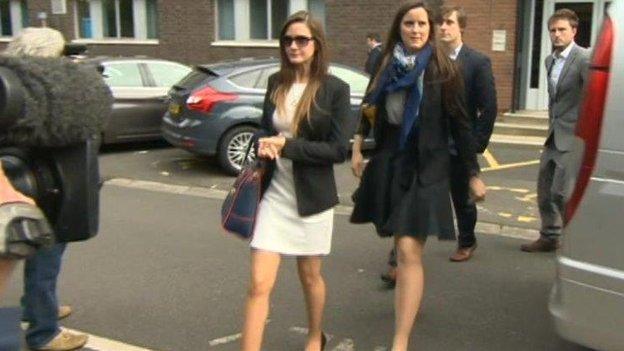
The widow of L/Cpl James Dunsby, Bryher Dunsby (l) arrives at the inquest
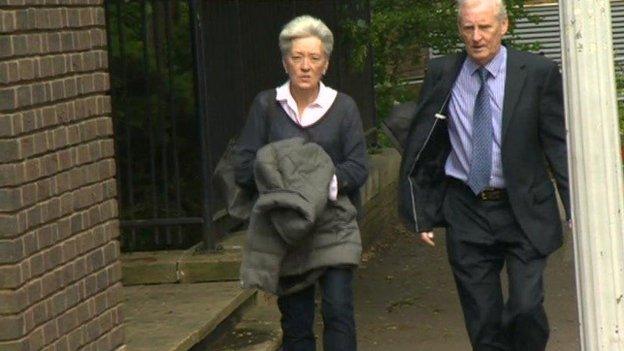
Parents of L/Cpl Edward Maher will hear evidence of how their son died
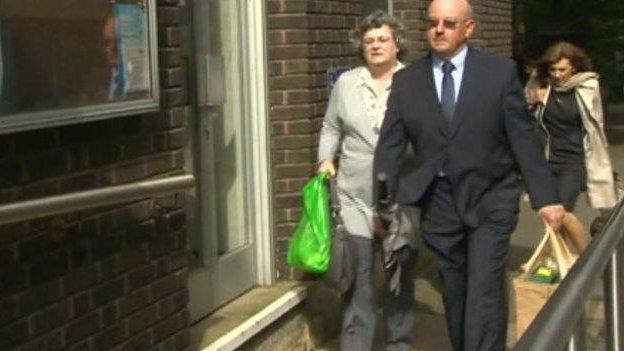
Parents of L/Cpl Roberts, Kelvin and Margaret Roberts, are at the inquest in Solihull
Det Con David Gilbert, of Dyfed-Powys Police, told the inquest course information showed several soldiers were pulled off the march because of the heat.
The tracking data of those who died was also able to show exactly where they succumbed to conditions.
At 15:36 BST, L/Cpl Roberts activated his personal "man-down" beacon showing he was in trouble, and was found 25 minutes later.
L/Cpl Maher, had set off on the same route at a slightly different time, but at 16:10 his tracker showed he had also stopped. He was not found for another 45 minutes, and was "not breathing". He was about 1,000 yards (914m) from the finishing line.
Multiple organ failure
Cpl Dunsby was on a different route. At 16:10, he was noted as not making any progress, and at 16:52 he was found by directing staff.
Both L/Cpl Roberts and L/Cpl Maher died of hyperthermia, while Cpl Dunsby died of multiple organ failure as a result of hyperthermia.
Between 12:14 and 16:53, at least nine soldiers were recorded as having problems with the heat, including Cpl Dunsby, L/Cpl Maher and L/Cpl Roberts.
A reservist, who was taken to hospital and survived, told the inquest it had been his third attempt at the march.
The man, who cannot be named and was referred to as 1X, said he was found unconscious by two walkers who gave him chocolate and water.
He said he reached a ridge and expected to cool down, but "there wasn't a trace of wind at all that day and I didn't manage to cool down as I'd expect".
Earlier in the hearing, Cpl Dunsby's widow had said her Afghan veteran husband was a qualified medic who knew well how to approach a training exercise, and the importance of drinking enough water.
The soldiers' families have been told any "factual failings" could feature in the coroner's conclusion, if uncovered.
Louise Hunt, senior coroner for Birmingham and Solihull, said: "It's important this inquest is both prompt, effective and independent and involves the families.
"It's also important that the full facts are brought to light, culpability and discreditable conduct exposed and suspicion of deliberate wrongdoing is allayed."
In 2014, a pre-inquest hearing was told the soldiers died from overheating.
The Crown Prosecution Service (CPS) decided not to bring gross negligence manslaughter charges, in July 2014.
- Published16 September 2014
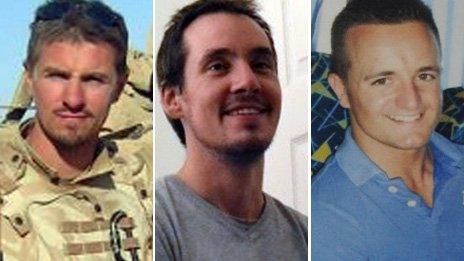
- Published1 July 2014

- Published3 September 2013
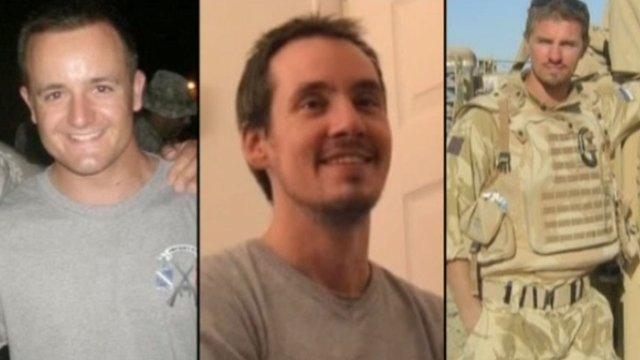
- Published3 September 2013

- Published5 September 2014
